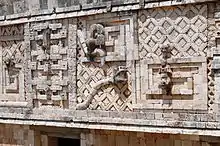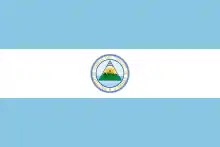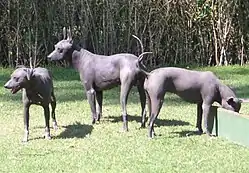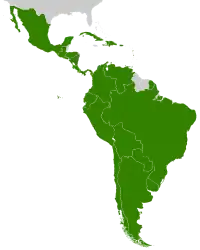The Central America Portal
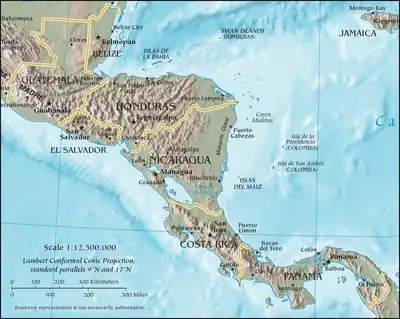
Central America is a subregion of the Americas. Its political boundaries are defined as bordering Mexico to the north, Colombia to the south, the Caribbean Sea to the east, and the Pacific Ocean to the west. Central America usually consists of seven countries: Belize, Costa Rica, El Salvador, Guatemala, Honduras, Nicaragua, and Panama. Within Central America is the Mesoamerican biodiversity hotspot, which extends from northern Guatemala to central Panama. Due to the presence of several active geologic faults and the Central America Volcanic Arc, there is a high amount of seismic activity in the region, such as volcanic eruptions and earthquakes, which has resulted in death, injury, and property damage.
In the pre-Columbian era, Central America was inhabited by the Indigenous peoples of Mesoamerica to the north and west and the Isthmo-Colombian peoples to the south and east. Following the Spanish expedition of Christopher Columbus' voyages to the Americas, Spain began to colonize the Americas. From 1609 to 1821, the majority of Central American territories (except for what would become Belize and Panama, and including the modern Mexican state of Chiapas) were governed by the viceroyalty of New Spain from Mexico City as the Captaincy General of Guatemala. On 24 August 1821, Spanish Viceroy Juan de O'Donojú signed the Treaty of Córdoba, which established New Spain's independence from Spain. On 15 September 1821, the Act of Independence of Central America was enacted to announce Central America's separation from the Spanish Empire and provide for the establishment of a new Central American state. Some of New Spain's provinces in the Central American region (i.e. what would become Guatemala, Honduras, El Salvador, Nicaragua and Costa Rica) were annexed to the First Mexican Empire; however in 1823 they seceded from Mexico to form the Federal Republic of Central America until 1838. (Full article...)
Selected article
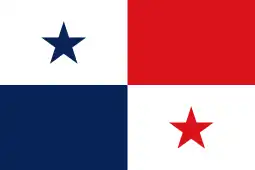
Panama (/ˈpænəmɑː/ ⓘ PAN-ə-mah, /pænəˈmɑː/ pan-ə-MAH; Spanish: Panamá IPA: [panaˈma] ⓘ), officially the Republic of Panama (Spanish: República de Panamá), is a transcontinental country in Central America, spanning the southern tip of North America into the northern part of South America. It is bordered by Costa Rica to the west, Colombia to the southeast, the Caribbean Sea to the north, and the Pacific Ocean to the south. Its capital and largest city is Panama City, whose metropolitan area is home to nearly half the country's over 4 million inhabitants.0
Panama was inhabited by indigenous tribes before Spanish colonists arrived in the 16th century. It broke away from Spain in 1821 and joined the Republic of Gran Colombia, a union of Nueva Granada, Ecuador, and Venezuela. After Gran Colombia dissolved in 1831, Panama and Nueva Granada eventually became the Republic of Colombia. With the backing of the United States, Panama seceded from Colombia in 1903, allowing the construction of the Panama Canal to be completed by the United States Army Corps of Engineers between 1904 and 1914. The 1977 Torrijos–Carter Treaties agreed to transfer the canal from the United States to Panama on December 31, 1999. The surrounding territory was first returned in 1979. (Full article...)Did you know...
- ... that while Pedro Joaquín Chamorro Barrios was exiled from Nicaragua and living in Costa Rica in the 1980s, his sister Claudia was there as Nicaragua’s ambassador?
- ... that José Adán Aguerri's family opened the first movie theater in Nicaragua?
- ... that Payal Ghanwani was the first Belizean senator of Indian descent?
- ... that the Corozal was the most powerful dredger ever built when she was launched in 1911 to work on the Panama Canal?
- ... that the Bitcoin Law would make El Salvador the first country to recognize bitcoin as legal tender?
- ... that the February 28 Popular Leagues would seize foreign embassies in protest against the military junta in El Salvador?
- ... that Panama cross-banded tree frog males synchronize their mating calls to confuse predators that locate them by sound?
- ... that the Adelaide L. T. Douglas House, built for a New York City socialite, housed the United States Olympic Committee before being sold to Guatemala?
Related portals
Get involved
For editor resources and to collaborate with other editors on improving Wikipedia's Central America-related articles, see WikiProject Central America.
Need help?
Do you have a question about Central America that you can't find the answer to?
Consider asking it at the Wikipedia reference desk.
General images
In the news
- 19 November 2023 –
- Nicaragua completes its withdrawal from the Organization of American States. (La Prensa Latina) (La Prensa)
- 18 November 2023 – Miss Universe 2023
- Miss Nicaragua Sheynnis Palacios is crowned Miss Universe by her predecessor, R'Bonney Gabriel, marking the country's first win in the pageant's history. (CNN)
- 16 November 2023 – 2023 Guatemalan general election
- The Guatemalan Attorney General's Office requests that the immunity of President-elect Bernardo Arévalo and Vice President-elect Karin Herrera be lifted for their alleged participation in the seizure of the facilities of the Universidad de San Carlos de Guatemala. If the request is successful, Arévalo and Herrera could be arrested. (Bloomberg)
- 14 November 2023 –
- Belize suspends diplomatic relations with Israel over its war conduct, and calls for an immediate ceasefire. (CNN)
- 3 November 2023 – International reactions to the 2023 Israel–Hamas war
- Honduras recalls its ambassador to Israel in response to Israel's military actions in the Gaza Strip. (Reuters via Yahoo! News)
- 26 October 2023 – 2024 Salvadoran general election
- Incumbent Salvadoran President Nayib Bukele officially registers his 2024 re-election campaign with the Supreme Electoral Court. (Reuters)
Subcategories
- Select [►] to view subcategories
Topics
Associated Wikimedia
The following Wikimedia Foundation sister projects provide more on this subject:
-
 Commons
Commons
Free media repository -
 Wikibooks
Wikibooks
Free textbooks and manuals -
 Wikidata
Wikidata
Free knowledge base -
 Wikinews
Wikinews
Free-content news -
 Wikiquote
Wikiquote
Collection of quotations -
 Wikisource
Wikisource
Free-content library -
 Wikiversity
Wikiversity
Free learning tools -
 Wiktionary
Wiktionary
Dictionary and thesaurus
-
 List of all portalsList of all portals
List of all portalsList of all portals -
 The arts portal
The arts portal -
 Biography portal
Biography portal -
 Current events portal
Current events portal -
 Geography portal
Geography portal -
 History portal
History portal -
 Mathematics portal
Mathematics portal -
 Science portal
Science portal -
 Society portal
Society portal -
 Technology portal
Technology portal -
 Random portalRandom portal
Random portalRandom portal -
 WikiProject PortalsWikiProject Portals
WikiProject PortalsWikiProject Portals
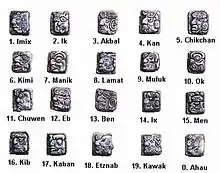
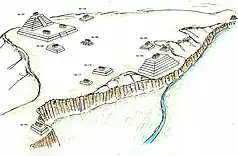
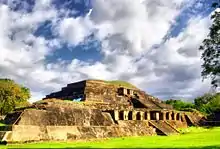
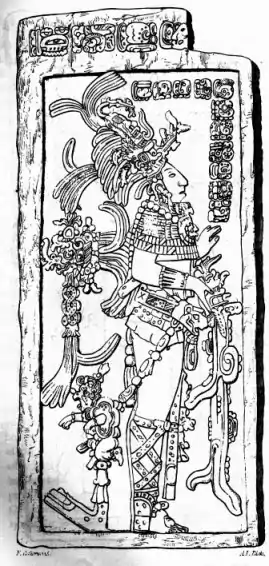
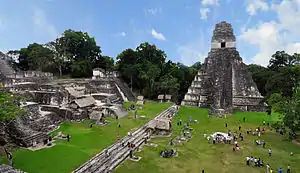
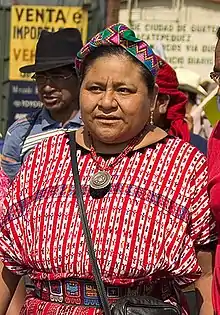


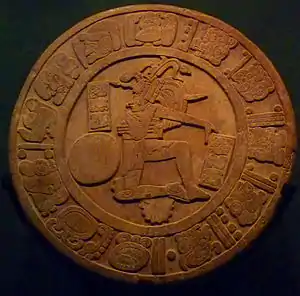
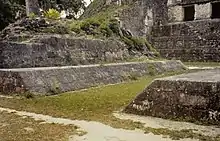
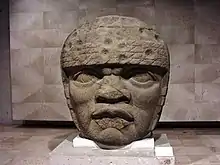
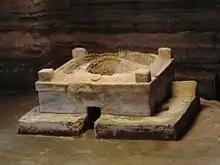
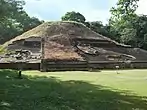
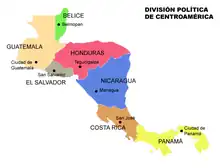
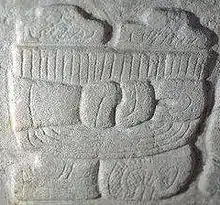


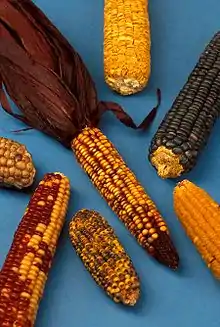
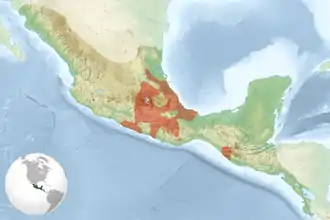

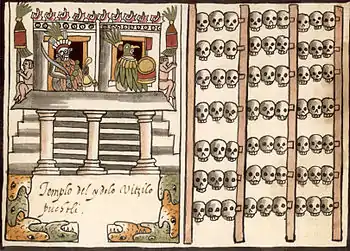
.png.webp)
.jpg.webp)
![Image 26Mesoamerica and its cultural areas[according to whom?] (from Mesoamerica)](../I/Mesoamerica_english.PNG.webp)


![Image 29Mesoamerica and Central America in the 16th century before Spanish arrival [according to whom?] (from Mesoamerica)](../I/Mesoam%C3%A9rica_y_Centroamerica_prehispanica_siglo_XVI.svg.png.webp)
.jpg.webp)
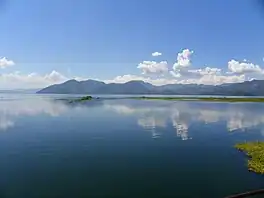
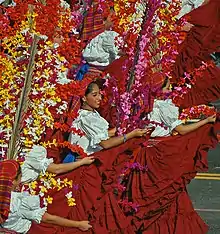
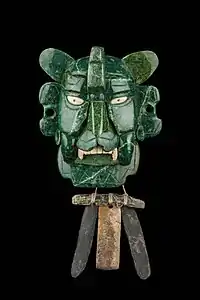
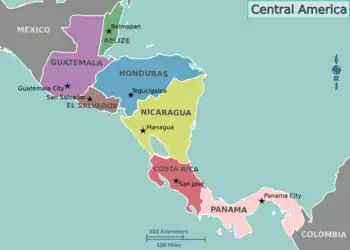
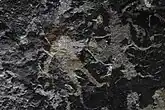
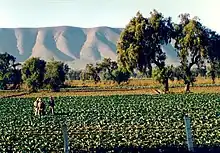
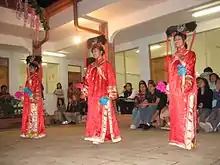
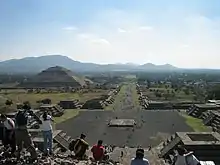
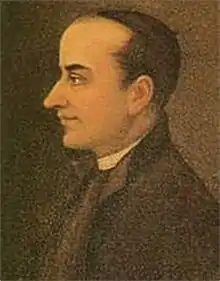
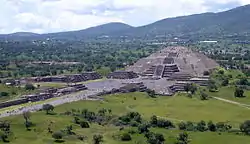
_-_Guatemala_1828_-_La_Danta_at_the_Mayan_site_of_El_Mirador.jpg.webp)
